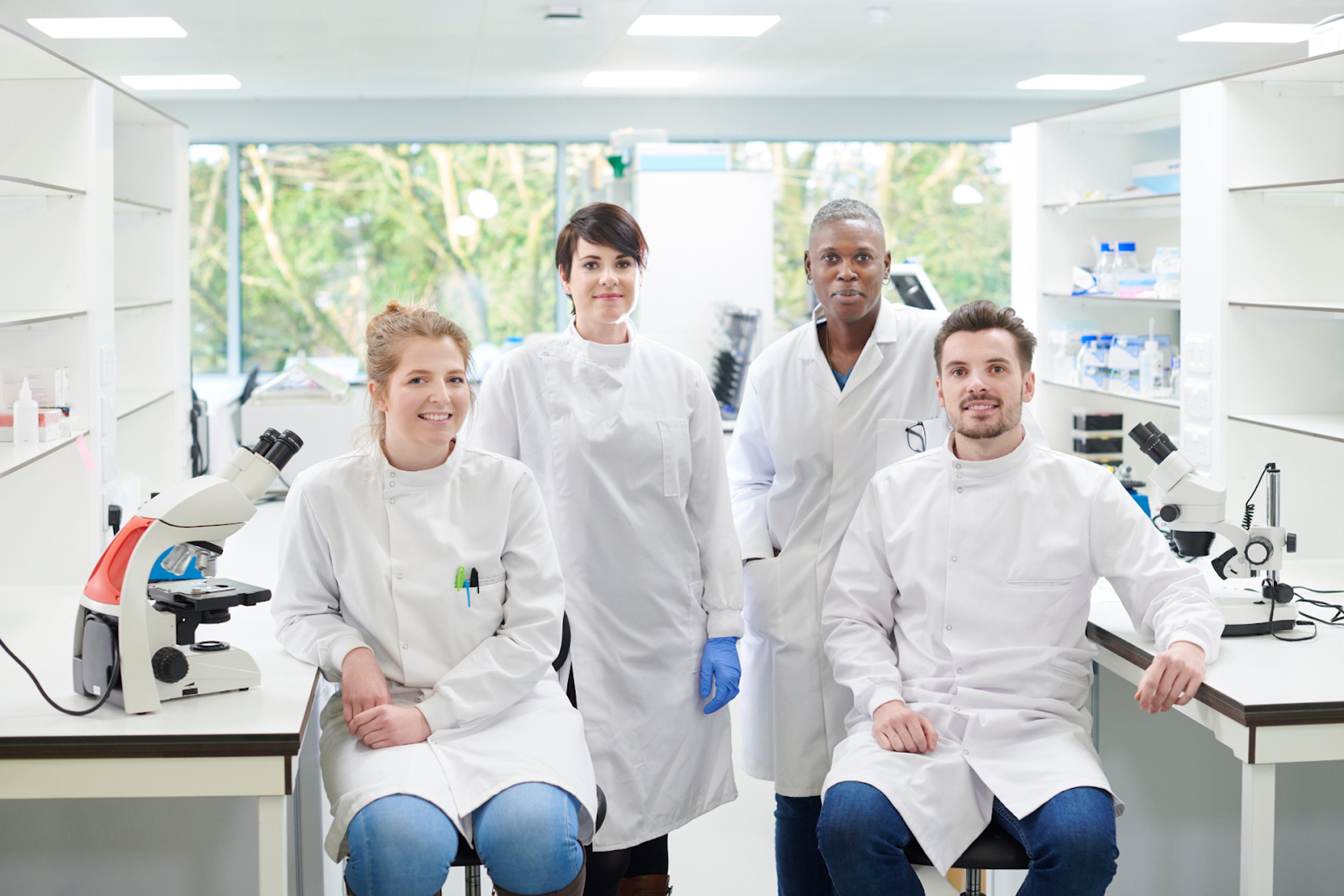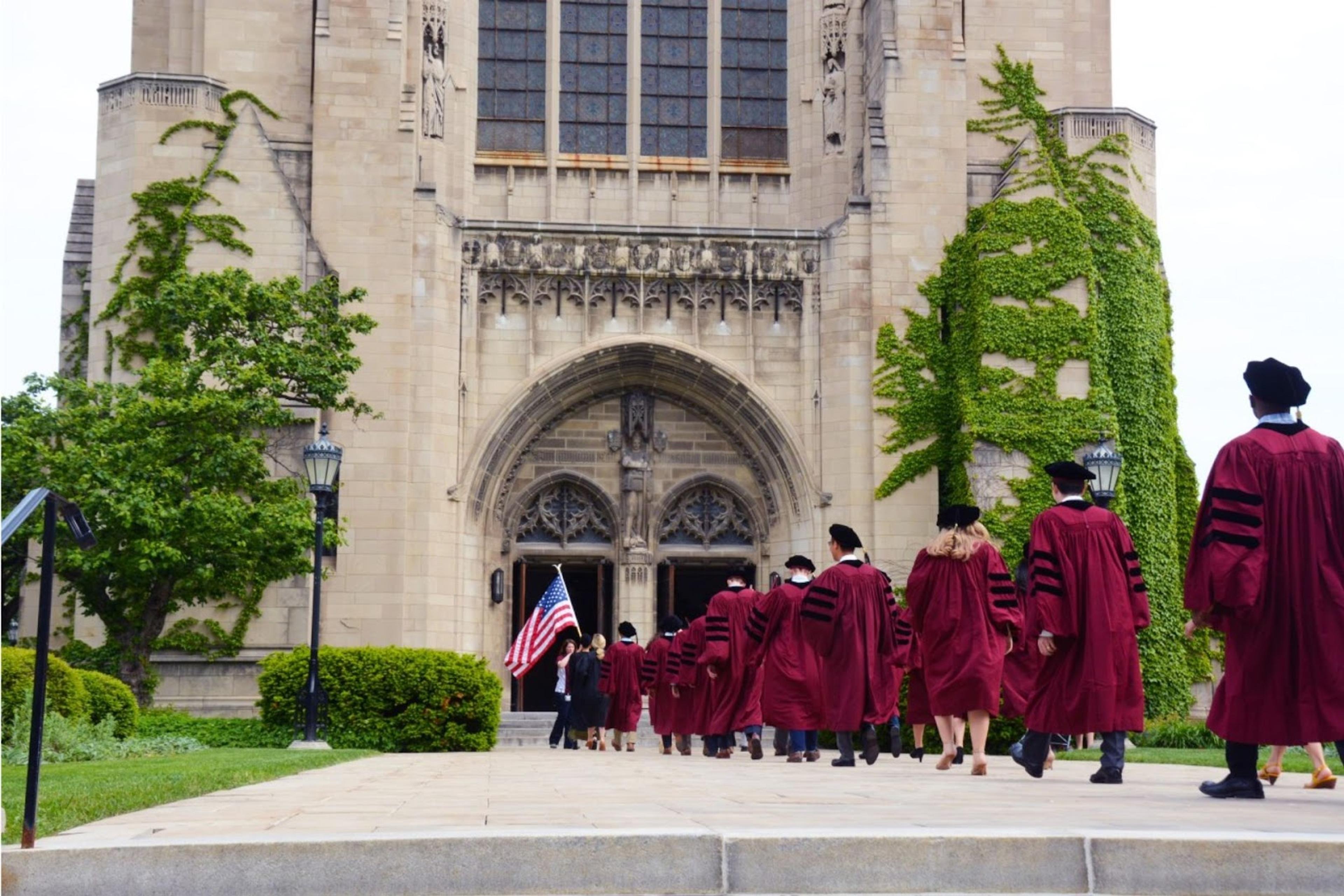The Ultimate Guide on How to Get Into Medical School
If you're aspiring to become a medical professional, this ultimate guide is a must-read for you.
Posted March 6, 2025

Table of Contents
If you’re considering a career in medicine, you’ve probably already heard about the grueling process of getting into medical school. But don’t be discouraged! With the right preparation and mindset, you can increase your chances of being accepted into the school of your choice. In this comprehensive guide, we’ll cover everything from the various types of medical schools and programs available to the common mistakes to avoid when applying. So, let’s get started!
Why Medical School is Worth the Investment
Before diving into the details of how to get into medical school, let’s first talk about why it’s worth it. Pursuing a career in medicine can be incredibly rewarding both financially and personally. According to the Bureau of Labor and Statistics, physicians and surgeons have a median annual salary of over $208,000. Beyond the financial benefits, becoming a doctor allows you to make a significant impact by helping others. The medical profession is one of the most respected and noble fields in society, and being a part of it can bring a sense of pride and fulfillment. However, it’s important to acknowledge that going to medical school requires significant investment of time, money and effort, so it’s essential to make an informed decision.
One of the benefits of attending medical school is the opportunity to specialize in a particular area of medicine. Specializing allows doctors to focus on a specific field, such as cardiology or neurology, and become experts in that area. This not only allows for a deeper understanding of the field but also provides the opportunity to work on cutting-edge research and treatments.
Another advantage of attending medical school is the potential for career advancement. Many doctors go on to become leaders in their field, whether it be through research, teaching, or administration. Additionally, the skills and knowledge gained in medical school can be applied to a variety of healthcare-related careers, such as healthcare consulting or public health policy.
The Different Types of Medical Schools and Programs Available
When it comes to medical schools, there are a few different types to be aware of. Traditional MD programs typically last four years, with the first two years focused on classroom and lab work, and the last two years spent in clinical rotations. DO programs are similar to MD programs but also place greater emphasis on holistic care and a hands-on approach. Caribbean medical schools are another option that can be more accessible to international students but may have lower acceptance rates for residencies in the US. There are also combined MD-PhD programs, which focus on research and typically take longer to complete.
In addition to these traditional medical school programs, there are also accelerated programs available for students who have already completed a bachelor's degree in a related field. These programs can take as little as three years to complete and may offer more specialized training in certain areas of medicine.
Another option for aspiring medical professionals is to attend a medical school that focuses on a specific area of medicine, such as osteopathic medicine, naturopathic medicine, or chiropractic medicine. These programs may have different requirements and approaches to healthcare, but can provide a unique perspective and skillset for graduates.
Tips for Choosing the Right Medical School for You
Choosing the right medical school is a crucial decision. Factors to consider include location, cost, academic reputation, class size, and available resources for students. It’s also worth researching each school’s curriculum and approach to medical education to find the one that aligns with your learning style and goals. Attend school information sessions, speak with current students, and visit the campuses to get a feel for the environment. Ultimately, the best fit for you will depend on your individual circumstances and priorities.
Another important factor to consider when choosing a medical school is the opportunities for hands-on experience. Look for schools that offer clinical rotations, internships, and research opportunities. These experiences will not only enhance your education but also give you a better understanding of the medical field and help you make informed decisions about your future career path. Additionally, consider the school’s connections to hospitals and healthcare facilities in the area, as this can provide valuable networking opportunities and potential job prospects after graduation.
The Importance of a Strong Academic Record in Getting into Medical School
Your academic record will be a significant factor in your medical school admissions process. Aim to maintain a high GPA throughout your undergraduate studies, especially in science courses. You’ll also need to take the Medical College Admission Test (MCAT). Start preparing months in advance and consider taking a prep course or hiring a tutor for additional support. Additionally, make sure to get involved in research or volunteer work related to medicine to demonstrate your dedication and passion for the field.
Another important aspect of getting into medical school is having strong letters of recommendation. These letters should come from professors, physicians, or other professionals who can speak to your academic abilities, work ethic, and potential as a future physician. It’s important to build relationships with these individuals early on in your undergraduate career and maintain those connections throughout your academic journey.
Furthermore, medical schools also look for well-rounded applicants who have demonstrated leadership skills and a commitment to their community. Consider joining clubs or organizations related to healthcare, volunteering at local hospitals or clinics, or participating in leadership roles on campus. These experiences can help you stand out as a candidate and show that you have the skills and qualities necessary to succeed in medical school and beyond.
How to Prepare for the MCAT Exam
The MCAT is a standardized, computer-based exam that assesses your mastery of concepts across a wide range of subjects. It’s crucial to begin preparing well in advance to give yourself the best chance of success. Start by taking practice exams to identify your strengths and weaknesses and create a study schedule around your needs. Utilize resources such as study guides, online modules, and question banks to reinforce your understanding of the material. Finally, don’t neglect the importance of sleep, exercise, and stress management to ensure you’re in the best mental and physical state on test day.
Another important aspect of preparing for the MCAT exam is to seek out support from peers and mentors. Joining a study group or finding a tutor can provide valuable insights and help you stay motivated throughout the preparation process. Additionally, consider reaching out to individuals who have already taken the exam to gain insights into their experiences and strategies for success. Remember, the MCAT is a challenging exam, but with dedication and a comprehensive study plan, you can achieve your desired score.
Strategies for Writing a Winning Personal Statement for Your Medical School Application
Your personal statement provides an opportunity to showcase your personality and unique perspective to admissions committees. Take the time to research the prompt and the values of the school you’re applying to. Use personal anecdotes and experiences to illustrate your passion for medicine and your qualifications for pursuing a career. Give yourself ample time to draft and revise your essay, and don’t be afraid to seek feedback from professors, peers, or a writing center.
Building a Competitive Resume: Extracurricular Activities and Volunteer Work that Impress Admissions Committees
Medical schools want to see evidence of your commitment to the field beyond academics. Seek out extracurricular activities and volunteer work that demonstrate your passion for healthcare or service to others. Consider volunteering at a hospital or clinic, joining a medical organization, or participating in research projects. Whatever activities you choose should be genuine and meaningful to you, rather than just a checkbox for your application.
The Role of Letters of Recommendation in Your Application Process
Your letters of recommendation offer insight into your work ethic, character, and potential for success in medical school and beyond. Choose recommenders who know you well, such as a professor or advisor, and who can speak to your abilities and achievements. Provide your recommenders with a copy of your personal statement and resume to help them tailor their letters effectively. Make sure to give your recommenders plenty of time to write and submit their letters, and follow up to ensure they’ve been received.
Navigating the Interview Process: What to Expect and How to Succeed
After passing the initial screening process, you may be invited to an interview. The interview is an opportunity to demonstrate your communication skills, professionalism, and enthusiasm for medicine. Prepare by researching the school and the interview format, and practice answering common interview questions with a friend or mentor. Dress appropriately, arrive early, and be prepared to ask thoughtful questions about the school and its programs. Finally, remember to be yourself and let your personality shine!
Financing Your Medical Education: Scholarships, Grants, and Loans Available
Medical school is expensive, but there are several options available to help finance your education. Apply for scholarships and grants offered by the school, professional organizations, or private foundations. Consider loans as a last resort and research programs such as the National Health Service Corps that offer loan forgiveness in exchange for service in underserved communities. Make a budget and plan for expenses such as textbooks, equipment, and living expenses to help manage your finances effectively.
Strategies for Balancing Medical School with Personal Life and Responsibilities
Medical school is demanding both academically and personally, and it’s essential to find ways to maintain a healthy balance. Utilize time-management and prioritization strategies to juggle coursework, clinical rotations, and extracurricular activities. Make time for self-care activities such as exercise, hobbies, or time with friends and family. Asking for help when needed and seeking out supportive peers and mentors can also be beneficial. Remember that self-care is an essential aspect of being successful in medical school and beyond.
Career Opportunities After Completing Medical School
After completing medical school and residency, numerous career opportunities are available. General practice physicians, surgeons, and specialists in various fields are in high demand. Many physicians also choose to work in research or administrative roles within healthcare organizations. With the growth of telemedicine and other innovative healthcare technologies, there are continually emerging job opportunities within the field.
Common Mistakes to Avoid When Applying to Medical School
Finally, let’s touch on some common mistakes to avoid when applying to medical school. Don’t apply to too many schools or too few, as both can hurt your chances of being accepted. Avoid making errors on your application, such as typos or formatting mistakes. Don’t rely solely on your academic record to carry your application, and don’t forget to highlight your unique qualities and experiences. Lastly, don’t forget to take care of yourself throughout the process and remember that your mental and physical health should always come first.
And there you have it, the ultimate guide on how to get into medical school. While the process can be challenging, it’s important to remember that with hard work and dedication, you can achieve your goals. Best of luck on your journey to becoming a doctor!












